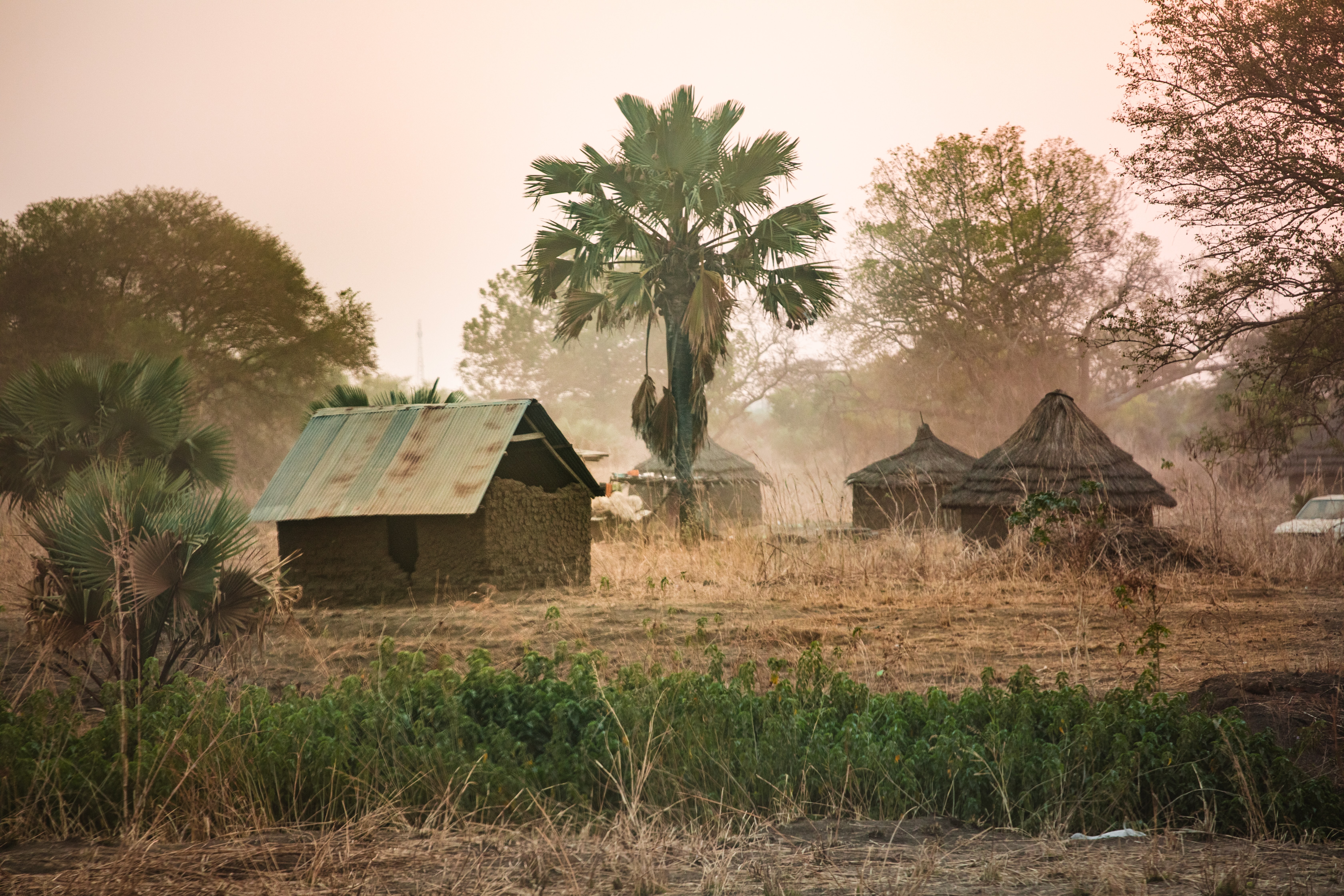South Sudan Resilience Factsheet
USAID’s assistance in South Sudan consists mostly of humanitarian aid and some long-term development programs in economic growth, education, democracy and governance and health.
Image

While South Sudan’s short history as the world’s newest country began as hopeful, it has been marred by conflict and natural disasters. Approximately 8.3 million people in South Sudan—nearly 70 percent of the population— require humanitarian assistance as of 2021.
The chronic conflict as well as environmental and economic shocks have increased food and water insecurity, poor health and education outcomes, and has made it difficult for many South Sudanese communities to cope. The proportion of South Sudanese facing severe food insecurity has increased from 19 percent in September 2014 to 60 percent in 2021. South Sudan also has the world’s highest rate of maternal mortality and the highest proportion of children out of school.Youth, mostly unemployed, make up more than 70 percent of the population.
Although agricultural production increased in 2019 for the first time in more than five years, ongoing conflict and insecurity, flooding and the effects of COVID-19 have hindered full agriculture production.
Program Strategies
USAID’s Strategic Framework in South Sudan is to build the resilience of citizens, communities and institutions to overcome conflict and man-made shocks. USAID, alongside other donors, has also coordinated a national-level recovery and resilience strategy as part of the Partnership for Recovery and Resilience (PfRR)
The strategy mandates focused, integrated USAID efforts in the Resilience Focus Zone (RFZ) that extends across five states and 13 counties.This zone was chosen based on a number of criteria, including crisis frequency, conflict risk and levels of vulnerability to shocks and stressors, food insecurity and acute malnutrition.
Activities and Strategic Partnerships
The Resilience through Agriculture in South Sudan (RASS) Activity aims to improve food security, accelerate recovery and strengthen overall resilience.The primary objectives of RASS are to:
- Strengthen the capacity of local systems and community groups to sustain gender-responsive, diversified and market-sensitive agriculture production
- Increase availability of, access to and utilization of a diverse and affordable diet
- Expand opportunities for sustainable, locally-driven livelihoods
RASS will help rural households and communities improve food security and reduce the need for food aid.
Education builds skills and is a critical foundation of resilience. Education interventions increase access and improve basic skills among youth to help prepare them for lifelong learning and/or future employment. Education activities are implemented in RFZ locations to ensure complementarity across USAID’s portfolio. These activities provide learning opportunities in a safe and protective environment, targeting youth populations that are most negatively affected by conflict.
The Gender-Aware Sustainable Water, Sanitation and Hygiene (WASH) Activity aims to expand access to gender-responsive and resilient WASH services.The objectives of the activity are to:
- Strengthen subnational and private WASH coordination and management
- Promote inclusive, resilient WASH services
- Encourage the adoption of key WASH behaviors
- Address harmful gender norms relevant to WASH
This activity will promote resilience through a focus on sustainable WASH service provision and professionalized operations and maintenance.
A set of health sector activities contribute to resilience building. The Health Pooled Fund offers communities affected by conflict access to basic lifesaving health services and pharmaceuticals.
The USAID Global Health Momentum Integrated Health Resilience (MIHR) Activity will build and maintain community- and facility-level health services in targeted areas to improve individual, household and community resilience to shocks and stresses.
The CORE Group Polio Project will support community-based surveillance activities in USAID priority communities.
The Shejeh Salam Peacebuilding Activity will operate at the state and local levels to empower citizens to mitigate communal violence, operate effectively in severely restricted political spaces, promote dialogue and trauma awareness and facilitate access to information. By promoting accountability and conflict mitigation, Shejeh Salam will build the resilience of targeted communities, develop more democratic responses and promote conflict recovery. Shejeh Salam will also support trauma awareness services to help individuals approach community engagement and dialogue with increased sensitivity.
Three Bureau for Humanitarian Assistance (BHA)-funded activities provide a suite of basic services and livelihood opportunities as part of the resilience portfolio: Complementary Action for Resilience Building in South Sudan (CARB), led by the Norwegian Refugee Council; Access, led by World Vision; and Pathways to Resilience (P2R), led by Catholic Relief Services.
Evaluation and Learning
To track, measure, assess and improve the results of USAID South Sudan’s Strategic Framework, USAID’s Monitoring, Evaluation and Support Project (MESP) is conducting a baseline survey of more than 8,000 households in the 13 USAID target counties.The MESP baseline survey aims to collect key data on resilience, food security, and other strategic objectives.The survey will enable USAID to learn about the current living conditions of residents, understand the shocks and stresses they face and assess the impact of USAID programs.
According to the Sustainable Agriculture for Economic Resiliency (SAFER) project midterm evaluation, beneficiary households across 15 counties in five states improved their resilience capacity index (RCI) by 75 percent since the SAFER baseline. Meanwhile, the RCI for nonbeneficiary households was 53 percent higher than the baseline. These findings indicate that USAID programming appears to be a factor for greater resilience, all while resilience has generally strengthened in South Sudan since the 2018 peace agreement.
These gains are greatest in government-controlled areas, which generally experience less conflict and insecurity than opposition-held areas. Additional survey data on resilience will be available soon.




